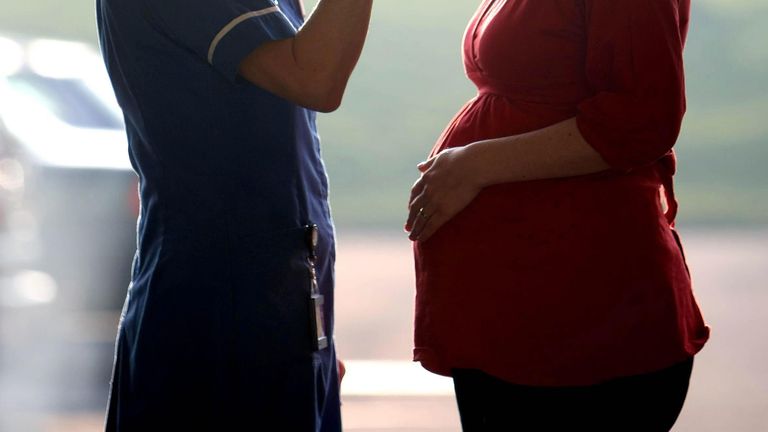'Chestfeeding': Hospital trust becomes first in UK to adopt gender inclusive language for perinatal services
Changes at Brighton and Sussex University Hospitals include referring to "breast/chestfeeding" and "human milk" where applicable.
Wednesday 10 February 2021 12:39, UK
A hospital trust has become the first in the UK to adopt gender inclusive language for its perinatal services, including referring to "breast/chestfeeding" and "human milk".
Brighton and Sussex University Hospitals NHS Trust said its move was designed to be "inclusive of trans & non-binary birthing people without excluding the language of women or motherhood".
Other changes include using the pronouns they/them where applicable, as well as referring to the "co-parent" or "second biological parent".
It stressed that the changes "do not apply when discussing or caring for individuals in a one-on-one capacity where language and documentation should reflect the gender identity of the individual".
"At BSUH we acknowledge the additional challenges that gender identity can have on pregnancy, birth and infant feeding and recognise the importance of providing inclusive, respectful care to pregnant people and their families," the trust said on its website.
"We are on a journey towards gender inclusive care for everybody during pregnancy, birth and afterwards.
"This journey is led by members of the trans and non-binary community. We are at the beginning of this process, which will continue over the next few years."
In a 19-page guidance document issued on the changes, the trust said its "gender-additive approach" would involve "using gender-neutral language alongside the language of womanhood, in order to ensure that everyone is represented and included".
"This decision has been taken following extensive discussions with local, national and international experts in trans and non-binary healthcare," it stated.
"We have also involved trans and non-binary parents who use our services, and in the wider community, in coming to this position.
"If we only use gender neutral language, we risk marginalising or erasing the experience of some of the women and people who use our services.
"We understand the fear of erasure, however, marginalising other groups because they are rare will not improve care for women."
It said there was "no known UK precedent" for its decision, adding: "In this respect, BSUH are leading the way."



